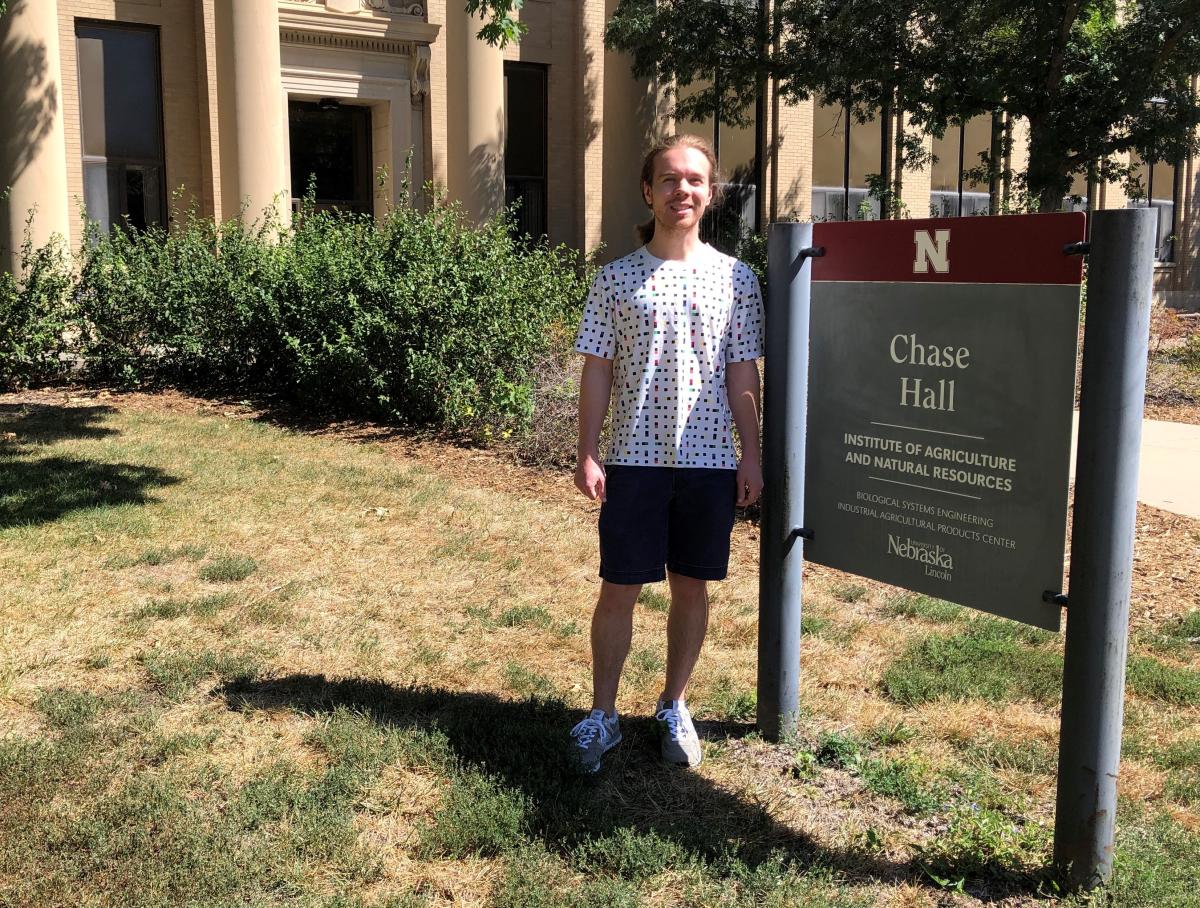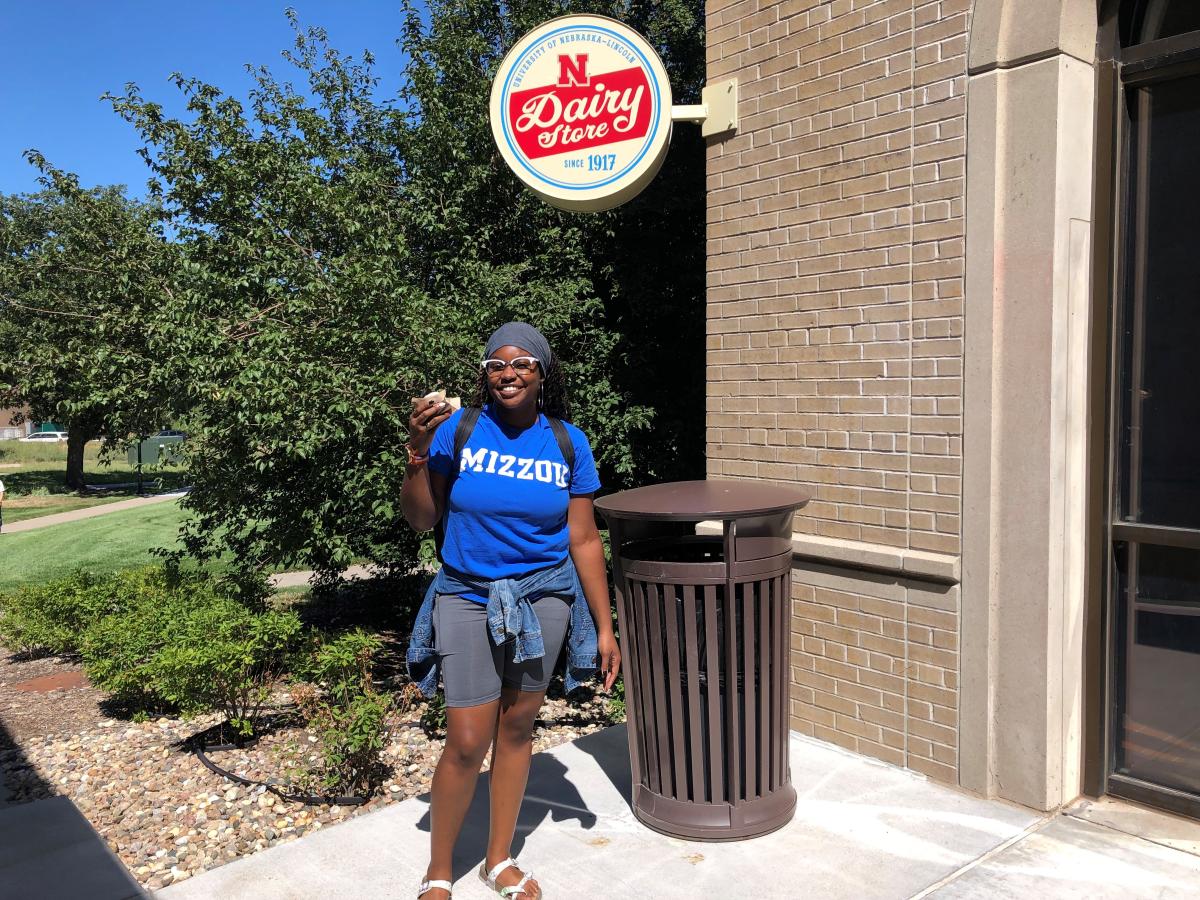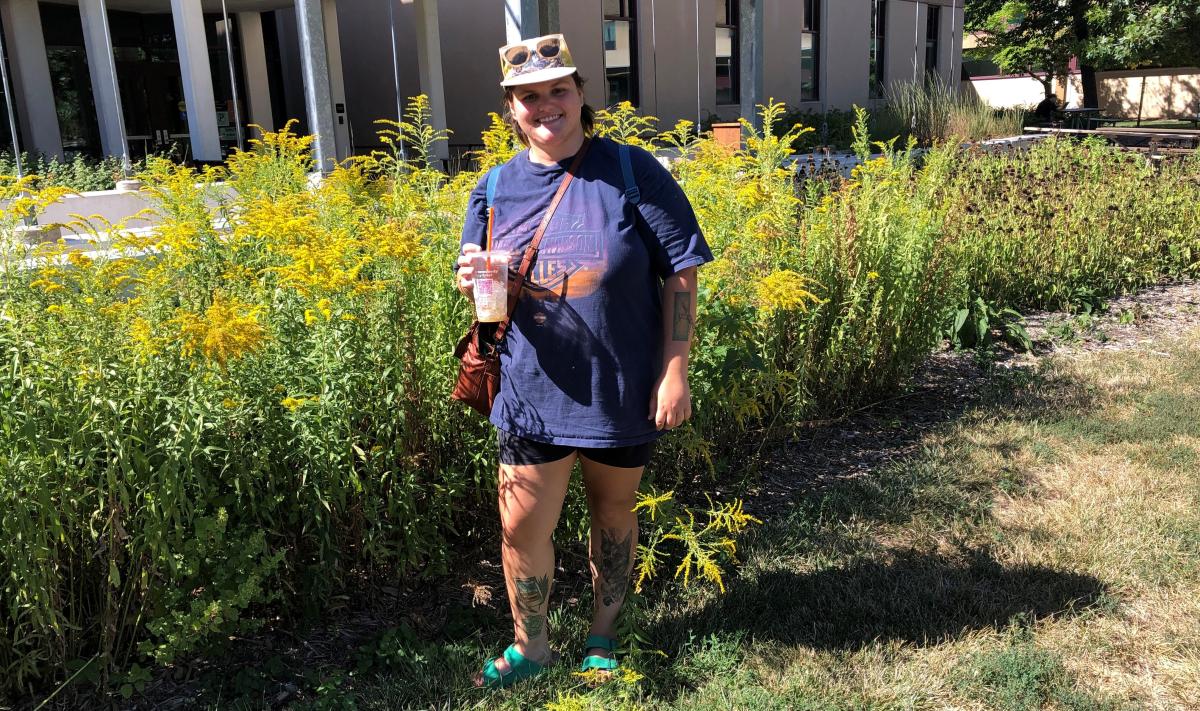The pandemic hindered the Nebraska NRT but also enabled the program to support an additional three graduate students in 2022-2023.
“Unfortunately, Covid affected the NRT in a fairly big way because a component of our NRT included time spent by trainees in Europe, which we were successfully able to do early in the NRT, but once Covid came, all travel was shut down,” Craig Allen, NRT program director said. “However, those savings still accrued, and that enabled us instead to support some of our current trainees longer and support three new trainees this year.”
With the extended funding of past students and addition of the three new students, the NRT is set to support 11 students through December 2022. Three students expect to graduate then, leaving eight students with funding up to July 31, 2022.
Next summer, Allen and the four other professors leading the project will determine how much funding remains and put it toward student support in 2023-2024 before ending the program at Nebraska in July 2024.
The National Science Foundation awards NRTs to universities as five-year programs, but because of Covid, NSF extended the Nebraska NRT another year to use funding on hand. Allen said he thought other NRTs around the nation may have received extensions as well, especially if they had remaining travel funds.
The university also awarded the NRT $200,000 to ensure that students joining in the fourth and fifth years of the program could finish their traineeships. This university funding may now extend the NRT program at Nebraska into a seventh year, 2023-2024.

The three new students awarded offer letters in 2022-2023 were Jonathan Cronk, a hydrology master’s student from St. Joseph, Missouri; Bridget McKinley, an agronomy master’s student from Ocean City, New Jersey; and Brandy Williams, a doctoral student in biological sciences from St. Louis, Missouri.
As an interdisciplinary program, the Nebraska NRT has supported students from 10 STEM departments. The professors heading it have continually sought engineering students, and Allen said they were pleased to bring in Cronk this year.
Cronk earned his bachelor’s degree in biological systems engineering at Nebraska in May 2021. For his master’s research, he plans to develop a model indicating what levels of aquifer withdrawals are likely to result in increased pollutants in well water, making it unsafe for drinking.
He said he was drawn to the NRT by the possibility to take part in interdisciplinary collaborations and was happy to hear of his acceptance into the program.
“It felt really great, especially the first day of class in NRES 902 when I got to meet some of the other students,” Cronk said. “They all seemed like such a good group and really nice, and Craig Allen seems like a great teacher. I’m excited about it.”
He said he expects to contribute to collaborations using his engineering training in general and in software like SolidWorks, MetLab, R, ArcGIS and Python.
“Probably my biggest distinguishing skill is going to be in applying math to problems,” he said. “My love is data analysis.”
Another native Missourian, Williams is a direct-to-Ph.D. student who took part in research all four of her undergraduate years at University of Missouri. She said she has received a lot of leadership training that should help in collaborations.

“I think I have acquired a good skill set to bring people together and help people play on their strengths to work together and accomplish a common goal,” she said. “That is one thing that I am proud that I know how to do because I do work well in teams, and research is all about collaboration.”
She plans to study piping plovers and the way the shorebirds try to defend their nests of chicks from nearby predators by pretending to have a broken wing to lure the predators away.
Williams said she had signed on as a teaching assistant with her advisor, Dai Shizuka in the School of Biological Sciences, when she was offered the NRT traineeship. Recognizing that her first year in graduate school as a first-generation college student in a new city and state by herself could be difficult, she said she was glad to join the NRT group and traineeship instead.
“It was just like a big sigh of relief because I was like, ‘I have time in my schedule to actually get adjusted, at least for a year,’” she said.
Williams said she is excited to meet other scientists, especially those who are first-generation and ethnically diverse like herself. She credited the University of Missouri professor who mentored her, Samniqueka Halsey, with showing her ways to teach such students without piling on exams and homework.
“She just showed me it’s OK to step into a teaching position and teach the way that you learn best so that you’re helping out other students,” Williams said. “She showed me that that is a possibility to send the elevator back down for other students.”
The third student the NRT hired this year, McKinley, is a nontraditional student who took off four years during her undergraduate education at Stockton University. She moved to New Mexico and took part in Worldwide Opportunities on Organic Farms, working on a farm while receiving housing and food.

“I kind of just fell in love with farming while I was doing it,” she said.
She then finished her bachelor’s in sustainability with a concentration in agro-ecology. She took a position with Andrea Basche, Nebraska agronomy professor, on a USDA-funded cover crop project. Basche informed her of the NRT openings, and McKinley applied and gained admittance.
“We've decided I'm still going to be on the USDA project, but because of the NRT, I can change it to be a little more resilience-focused and unique to me instead of just whatever they needed the project to be,” McKinley said.
McKinley anticipates having the opportunity to do more research and interdisciplinary work in the NRT.
“I'm going to get to do more ecology and stuff like that, which is not part of a more traditional agronomy program,” she said. “I'm excited to be able to take those classes that I wouldn't have the opportunity to otherwise.”
She and the other two students are now taking “Foundations of Resilience” interdisciplinary class that Allen teaches.
Before August, none of the students had even heard of the NRT.
“This opportunity came up with relatively little warning,” Allen said. “Luckily, we were able to scramble, and it was a hurried recruitment effort, but we ended up with a small but strong cohort.”
— Ronica Stromberg, NRT Program Coordinator


